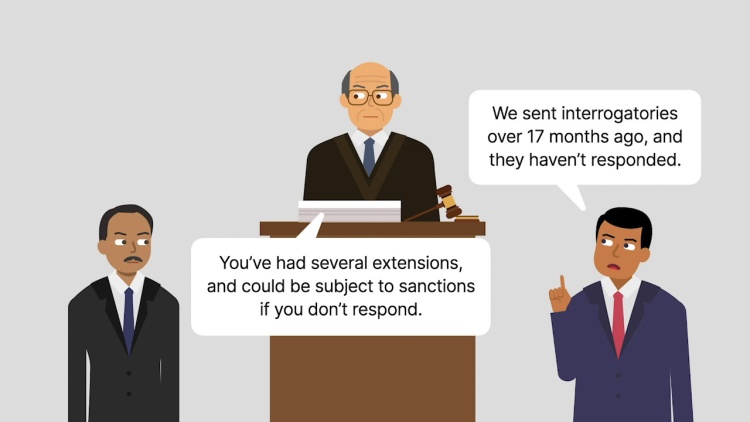National Hockey League v. Metropolitan Hockey Club, Inc.
United States Supreme Court
427 U.S. 639 (1976)

- Written by Sara Rhee, JD
Facts
M-GB and several other plaintiffs (plaintiffs) brought an antitrust action against the National Hockey League and others (defendants). The defendants served M-GB with interrogatories. M-GB failed to sufficiently respond to the interrogatories over the course of 17 months. During this period, the district court granted several extensions and warned M-GB that it could be sanctioned under Rule 37 of the Federal Rules of Civil Procedure if it failed to comply. The district court ultimately determined that M-GB had acted in flagrant bad faith and dismissed its case pursuant to Rule 37. The United States Court of Appeals for the Third Circuit reversed, finding that there was insufficient evidence to find that M-GB’s failure to answer the interrogatories was in bad faith. The court of appeals noted that the defendants had not earnestly sought responses to their discovery demands until about one year after the complaint was filed, when the defendants settled with all the original plaintiffs except M-GB. The court of appeals also noted that, after the other plaintiffs settled, M-GB retained new counsel, who encountered difficulty in obtaining the requested information. Based on these facts, the court of appeals found that the district court abused its discretion in dismissing the case. The defendants appealed.
Rule of Law
Issue
Holding and Reasoning (Per Curiam)
What to do next…
Here's why 907,000 law students have relied on our case briefs:
- Written by law professors and practitioners, not other law students. 47,100 briefs, keyed to 996 casebooks. Top-notch customer support.
- The right amount of information, includes the facts, issues, rule of law, holding and reasoning, and any concurrences and dissents.
- Access in your classes, works on your mobile and tablet. Massive library of related video lessons and high quality multiple-choice questions.
- Easy to use, uniform format for every case brief. Written in plain English, not in legalese. Our briefs summarize and simplify; they don’t just repeat the court’s language.







